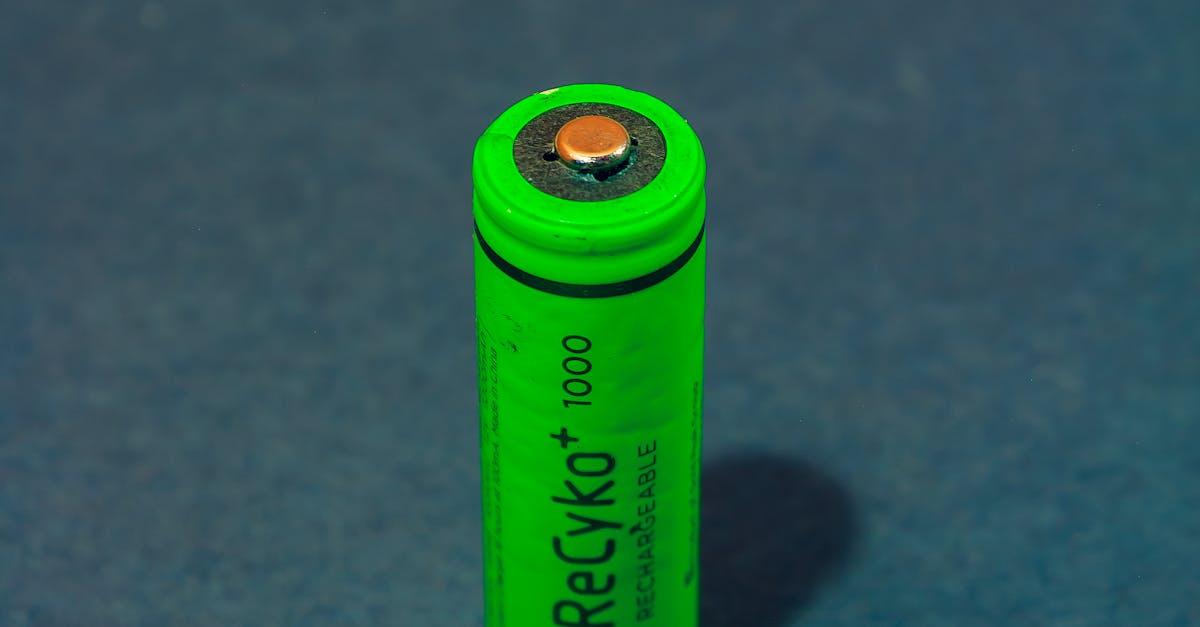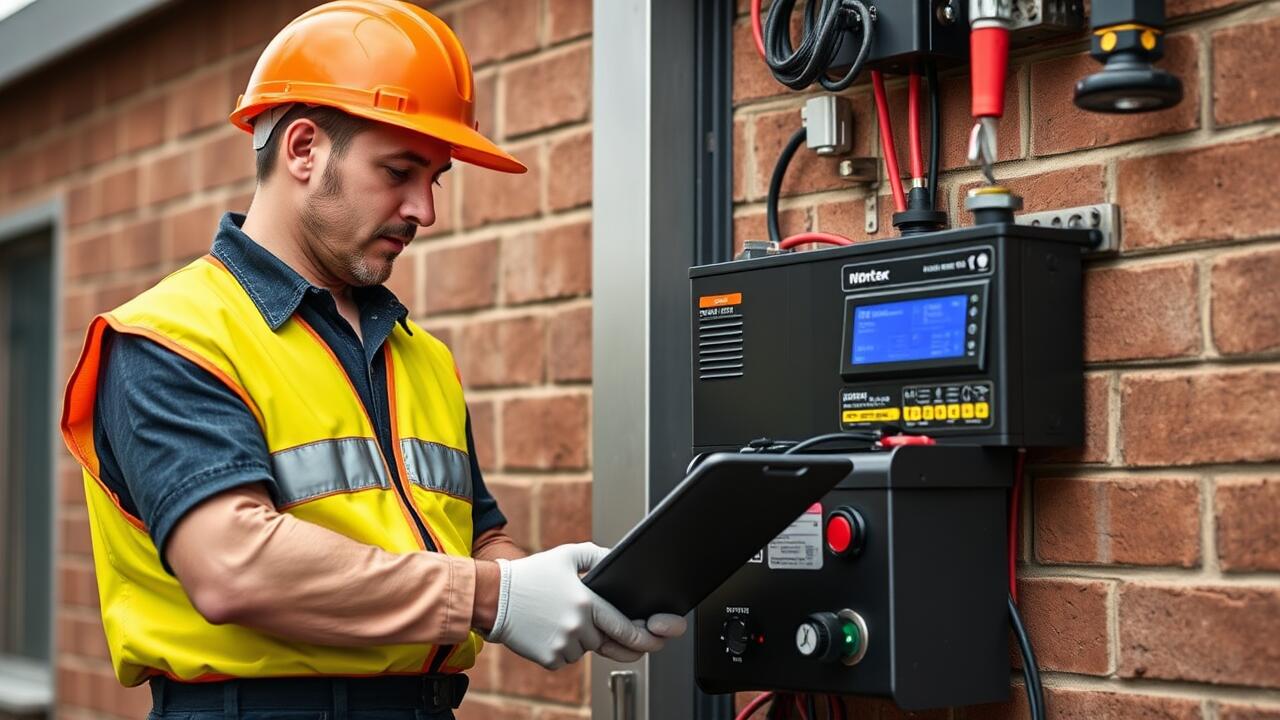
Comparing Battery Types
When considering home battery storage solutions, various types of batteries offer different advantages and levels of efficiency. Lithium-ion batteries are popular for residential use due to their high energy density and longer lifespan. Additionally, they tend to be more efficient at converting stored energy back into usable power. Other options, such as lead-acid batteries, are less expensive but generally have shorter life cycles and higher self-discharge rates.
Home Battery Storage Hucknall, Nottinghamshire showcases a range of battery technologies in action. Some homeowners opt for advanced lithium-ion systems, while others might choose more traditional options based on budget and energy requirements. Understanding these differences can help homeowners make informed decisions about the best battery type for their specific needs and ensure that they maximise their energy storage capabilities.
Different technologies and their efficiencies
Various technologies are available for home battery storage, each with distinct efficiencies that influence their performance in residential settings. Lithium-ion batteries are among the most popular choices due to their high energy density and relatively long lifespan. These batteries can typically deliver around 90-95% efficiency, making them suitable for storing energy generated from renewable sources, such as solar panels. However, alternatives like lead-acid batteries, while generally less expensive, usually exhibit lower efficiencies ranging from 70-85%. This lower efficiency can impact overall energy use, making the choice of technology crucial for optimal performance.
The efficiency of battery systems can also vary based on installation practices and specific conditions within a home. For instance, Home Battery Storage Hucknall, Nottinghamshire, might demonstrate the use of various battery types, highlighting the importance of careful selection and installation. Temperature fluctuations affect battery performance; excessive heat can reduce efficiency, while cold temperatures may decrease the available capacity. Understanding these factors helps consumers make informed decisions, enabling them to select the right technology that aligns with their home energy requirements.
Real-life Examples
Home Battery Storage Hucknall, Nottinghamshire, serves as an illustrative example of how a 10kW battery can benefit residential energy management. One installation in this area showcases its ability to store surplus energy generated during peak sunlight hours from solar panels. This stored energy can then be used during the evenings or on cloudy days, reducing reliance on the grid and lowering electricity bills significantly. Homeowners reported a marked improvement in energy independence.
Another case study from Hucknall demonstrates the versatility of battery systems during varying household demands. With a 10kW battery, families find they can power essential appliances during power outages, ensuring that their daily routines are disrupted as little as possible. This resilience not only enhances energy security but also illustrates the value of integrating such technology into modern homes for both efficiency and sustainability.
Case studies of 10kW battery installations
In Hucknall, Nottinghamshire, the installation of a 10kW battery system has demonstrated substantial benefits for local homeowners. One case study highlights a family that installed this energy solution alongside solar panels. The combination allows them to store excess solar energy generated during sunny days, which then powers their home during peak usage hours or at night. This setup has significantly reduced their reliance on the grid and lowered energy costs.
Another example from a similar installation in the area showcases how the 10kW battery effectively supports energy needs during winter months. With shorter days and fluctuating weather conditions, the battery plays a crucial role in managing energy consumption. By providing a reliable backup during times of increased demand or system outages, the homeowners have found peace of mind, knowing they have a consistent power supply through their Home Battery Storage Hucknall, Nottinghamshire system.
Impact of Weather on Energy Storage
Temperature fluctuations can significantly influence the performance of energy storage systems. Batteries typically have optimal operating temperature ranges, and extreme cold or heat can affect their efficiency and overall lifespan. Home Battery Storage Hucknall, Nottinghamshire, can encounter such challenges, particularly during the colder months when reduced performance is more noticeable. Battery output may drop, resulting in less usable power for the household compared to warmer seasons.
Humidity and environmental factors can further complicate energy storage effectiveness. High humidity can impact battery components and lead to quicker degradation, while prolonged exposure to extreme weather conditions can strain the system's resilience. Home Battery Storage Hucknall, Nottinghamshire, needs to be installed with these factors in mind to ensure proper ventilation and shielding from adverse weather, ultimately extending the battery's lifespan and maintaining its efficiency.
How climate affects battery efficiency
Climate plays a significant role in the efficiency of energy storage systems, including battery technologies. Extreme cold can reduce a battery's capacity and overall performance, as chemical reactions within the battery slow down in lower temperatures. Conversely, excessive heat can lead to increased wear and degradation, impacting the battery’s lifespan and its ability to retain charge. For those considering installations, such as Home Battery Storage Hucknall, Nottinghamshire, understanding local climate nuances is essential for optimal system performance.
Additionally, humidity levels can influence battery efficiency. High humidity may affect the performance of outdoor battery systems, potentially leading to corrosion or moisture-related issues. Maintaining the right environmental conditions is critical to ensure sustained energy output, especially in regions with fluctuating weather patterns. Homeowners should take these factors into account when planning their energy storage solutions to maximise the benefits of their systems.
FAQS
How long can a 10kW battery power my house?
The duration a 10kW battery can power your house depends on your energy consumption. For example, if your home uses 5kWh per day, a fully charged 10kW battery could theoretically power your home for two days. However, actual performance may vary based on factors such as appliance usage and efficiency.
What factors affect the performance of a 10kW battery?
Several factors can influence the performance of a 10kW battery, including your household's energy consumption patterns, the efficiency of the battery technology, and environmental conditions such as temperature and humidity.
Are there different types of batteries I can choose from?
Yes, there are various types of batteries available, including lithium-ion, lead-acid, and flow batteries. Each type has its own advantages and disadvantages in terms of efficiency, lifespan, and cost.
How does weather impact my battery's efficiency?
Weather conditions can significantly affect battery efficiency. For example, extreme temperatures can reduce a battery's capacity and lifespan, while humidity can influence charging and discharging rates.
What are some real-life examples of 10kW battery installations?
Many households have successfully installed 10kW battery systems to complement their solar panels. Case studies show varying results based on household energy consumption and local climate conditions, illustrating the importance of tailored energy solutions.


